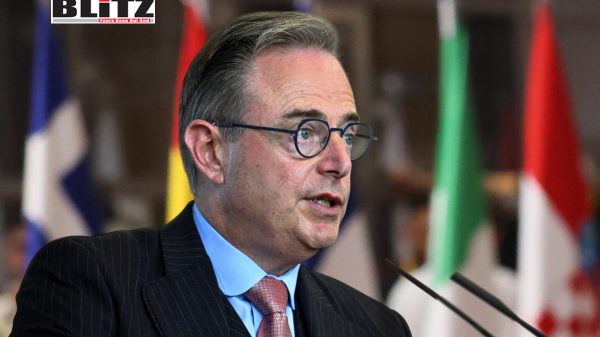Labour’s pro-business shift risks turning UK regulators into corporate enablers
- Update Time : Sunday, October 26, 2025

When Sir Keir Starmer entered Downing Street in July 2024, many expected the Labour Party to usher in an era of economic pragmatism rooted in fairness – a corrective to the market excesses of Conservative rule. Yet within little more than a year, Starmer’s government has begun dismantling one of the few remaining institutional barriers between corporate power and ordinary British consumers: the Competition and Markets Authority (CMA).
Once regarded as a bastion of regulatory independence, the CMA has been transformed into an instrument of the government’s pro-business agenda. Under the banner of “growth,” Labour has aligned itself with the interests of Big Tech, finance, and private equity – often at the expense of market competition and consumer protection. Critics say the Starmer government’s approach not only betrays Labour’s social-democratic roots but also risks entrenching monopolistic dominance that will cost ordinary Britons dearly in the years to come.
The unraveling began with the removal of Marcus Bokkerink, the former CMA chair and a one-time Boston Consulting Group executive. Bokkerink’s tenure was defined by his insistence that robust competition policy benefits not only consumers but long-term economic growth. His view was clear: “whenever the CMA has stepped in to keep markets open by preventing attempts to lock out competing investors through anti-competitive mergers,” he argued, “we have seen new investment flow in.”
But that philosophy ran headlong into the ambitions of a Labour government desperate to prove its “business-friendly” credentials. Bokkerink’s decision to block Microsoft’s $75.4 billion acquisition of Activision Blizzard in 2023 – a move widely praised by economists but reviled by corporate lobbyists – painted a target on his back. After Labour’s election victory, ministers swiftly ousted him, replacing him with Doug Gurr, the former head of Amazon UK.
“A monopolist has been appointed to lead the anti-monopoly watchdog,” one competition lawyer remarked. To critics, the symbolism was unmistakable: Britain’s regulators were being brought to heel.
The prime minister made his intentions explicit at the International Investment Summit in October 2024, held in London’s historic Guildhall before an audience of global financiers and tech executives. “We will rip out the bureaucracy that blocks investment,” Starmer declared. “We will march through the institutions… and make sure that every regulator in this country takes growth as seriously as this room does.”
The rhetoric echoed Margaret Thatcher’s neoliberal crusade of the 1980s but with a modern, technocratic polish. In Starmer’s calculus, regulatory “reform” means aligning oversight bodies with the priorities of investors, not the public. The appointment of Clare Barclay, Microsoft UK’s CEO, to head Labour’s new Industrial Strategy Council epitomized this ideological shift.
Nicholas Shaxson, the author and financial journalist, warns that Starmer’s deregulation drive rests on a “fallacy – that there is a trade-off between regulation and growth.” By “defenestrating the CMA and allowing further monopolisation of the economy by Big Tech,” he argues, Labour risks repeating the mistakes that hollowed out Britain’s industrial base in the past. “Big dominant businesses are crushing the life out of Britain’s small and medium-sized enterprises,” Shaxson said. “The government is trying to boost competitiveness by undermining competition – which is as ridiculous as it sounds.”
The irony, of course, is that the CMA’s earlier vigilance was vindicated almost immediately. Last month, Microsoft raised its Xbox Game Pass prices by more than 50%, just as the regulator had warned when it first opposed the merger. Microsoft denied any link between the price hike and the Activision deal – a claim dismissed by Lina Khan, former head of the US Federal Trade Commission. “As dominant firms become too-big-to-care,” she noted, “they can make things worse for their customers without having to worry about the consequences.”
Behind the government’s campaign to “defang” regulators lies a small but powerful network of advisers and corporate insiders. Chief among them is Varun Chandra, Starmer’s business adviser and a former managing partner at Hakluyt & Company – a shadowy intelligence firm that advises multinational corporations on navigating regulatory and political risk.
Chandra’s influence, according to sources across Westminster and the City, is immense. “From a business point of view,” one tech lobbyist told openDemocracy, “he is the most important person in government apart from Rachel Reeves.” Insiders say he played a central role in the dismissal of Bokkerink and the subsequent shift in regulatory policy.
Chandra’s background only deepens concerns. His firm, Hakluyt, reportedly advised Microsoft during its attempt to secure approval for the Activision merger. Not long after, Microsoft board member Sandra Peterson joined Hakluyt’s international advisory board – a move that raised eyebrows even among seasoned lobbyists.
Labour’s new regulatory approach, insiders say, is built on a “listening exercise” – a euphemism for unprecedented corporate access to policymakers. Transparency records show that CMA officials have met more frequently with representatives from Microsoft, Amazon, Apple, Google, and Meta than with consumer groups such as Which? or Citizens’ Advice. Microsoft alone secured four meetings in a matter of months.
As one former CMA insider put it, “We used to see lobbying as a nuisance to be managed. Now it’s practically part of the process.”
For ordinary Britons, the consequences are already materializing. In December 2024, the CMA approved a merger between Vodafone and Three – two of the country’s largest mobile providers – despite warnings from economists that it could lead to price increases of up to 50%. The decision, hailed by ministers as a “vote of confidence” in the UK’s economy, was interpreted by industry analysts as a clear signal: the government would no longer stand in the way of major corporate consolidation.
The CMA accepted only “behavioural remedies” – non-binding promises by the companies to invest in network expansion – rather than structural changes to preserve competition. “The previous view was: we don’t believe promises, we look at incentives,” said one competition lawyer. “Now, it’s all about optics – proving to investors that Britain is open for business, even if consumers pay the price.”
The telecommunications merger was not an isolated case. The CMA recently approved a 3% hike in water bills across England, on top of a 36% increase already granted, despite years of mismanagement and record profits among privatized utilities. Its intervention in the veterinary sector, meanwhile, is widely seen as a gift to private equity-backed corporations seeking to consolidate small independent practices.
As economist Tim Cowen observes, “A Labour government that truly cares about growth and jobs shouldn’t be on the side of monopolists. When you monopolize markets, you raise prices, limit output, and reduce employment – that’s socially detrimental.”
His research suggests that monopoly rents from online advertising alone cost the average UK household an additional £1,200 per year – a hidden tax paid to the likes of Google and Facebook.
The transformation of the CMA into a pro-business agency is emblematic of a wider ideological shift within Starmer’s Labour. The party that once promised to “put working people first” now appears to prioritize investment bankers and Silicon Valley executives.
Rachel Reeves, the chancellor, hailed Bokkerink’s removal as a “massive step change.” In remarks to the British Private Equity and Venture Capital Association – an organization with close ties to Labour – she said, “Previously, businesses, especially in tech, had been raising concerns about the CMA. That has changed a lot.”
Her comment revealed what Labour’s economic policy has truly become: not a balancing act between growth and fairness, but a direct alignment with the demands of corporate power.
Even within the CMA, morale has reportedly plummeted. “There’s a sense that we’re being sidelined,” said one official. “We were meant to protect consumers, not clear a path for mergers.”
Starmer’s supporters argue that Britain’s stagnant economy requires bold steps to attract investment and restore growth. Yet the government’s strategy – to “rip out bureaucracy” and pacify investors – may end up exacerbating the very malaise it seeks to cure.
The logic of deregulation assumes that fewer restrictions will automatically yield more investment. But as decades of neoliberal experiments have shown, monopolistic markets often stifle innovation, discourage startups, and extract more from consumers without reinvesting in productivity. The same forces that hollowed out Britain’s manufacturing base in the 1980s are now being reintroduced under a different guise.
If current trends continue, the UK risks becoming a corporate playground – a nation where the price of “competitiveness” is paid by consumers through higher bills, fewer choices, and declining service standards. As the CMA’s authority erodes, the public’s ability to challenge monopolies and corporate excesses will shrink with it.
“The next phase,” warned one competition lawyer, “will be seeing to what extent the government completely defangs the regulatory regime. And by then, it might be too late to stop.”
Keir Starmer’s Labour government may frame its pro-business crusade as a pragmatic response to economic stagnation, but in reality, it represents a profound realignment of British political priorities. The deliberate weakening of the CMA, the elevation of corporate insiders to key policymaking roles, and the embrace of deregulation as dogma all point to a government that has chosen the side of capital over consumers.
For the average Briton – facing rising bills, shrinking competition, and fewer protections – the cost of this experiment in “growth” will be all too real. Labour’s attempt to court the confidence of global markets may win applause from boardrooms, but it risks eroding the public trust that underpins any functioning democracy.
In its quest to appear “open for business,” Starmer’s Britain may soon find itself closed to fairness.










